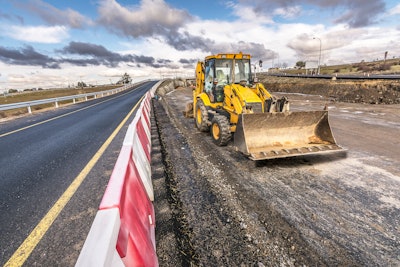
In September, the deputy director of planning and modal programs, Jeanie Ward-Waller, was unceremoniously removed from her position at the California Department of Transportation (Caltrans). The new position she was going to transition into would be a demotion within the agency, according to a report at the time by Politico. On Oct. 3, she told the same publication that her demotion was the result of her objection to various highway expansion projects.
According the details broken by the Politico story, the timing is key. She was reassigned just three weeks after her internal notification to other agency officials that she would be filing a whistleblower complaint about road construction projects in the Sacramento area that allegedly violate environmental rules established by the state of California.
In her role as deputy director of planning, she had oversight over all of Caltrans' long-term strategies and research, which included input over the agency's policy and agenda. The agency oversees all state highways, as well as, all state and federal transportation spending, including on rail, bike lanes and pedestrian routes as well as roads.
In an interview with Ward-Waller, she said that her objections to two construction project on Highway 80 were due to Caltrans' state and federal permits improperly classifying and understating their environmental impacts.
This leads to a broader question: if California, seen as a highly progressive state in terms of environmental policy and action is, in fact, circumventing these rules, are similar actions being taken by states across the country?
If that is the case, then legislative efforts to increase sustainability, improve transportation through multimodal options, and, ultimately, curtail the increasing effects of climate change might be undone before they get the chance to make any positive impact. All while the voting public is unaware that the laws their elected officials put into place are potentially being ignored.
Ward-Waller told Politico, "My job at Caltrans headquarters was really to help move us in a direction where we’re not widening highways so much anymore. We care about climate, we care about equity, so we’re trying to move towards more multimodal options and do less widening. My involvement in projects like this is from that kind of a perspective, of trying to challenge the districts to think differently about how they’re approaching projects like this.”
The Projects In Question
Both of the highway projects in question are located on the YOLO Causeway, an elevated highway between Davis and Sacramento that crosses the Yolo Bypass. This is a floodplain that serves as a wildlife habitat.
Ward-Waller alleged in her complaint, she says she filed on September 16, that Caltrans intentionally mislabeled the first project, which began in August, as "pavement maintenance" even though it will actually widen the road to allow for the construction of entirely new lanes. She indicated that, because of this, it is an illegal use of state funds that are set aside strictly for road maintenance projects and not for widening.
Additionally, the way in which the projects are divided up represented a way to speed up and simplify the permitting process for the first project, which allowed it to avoid the evaluations for alternatives under the the California Environmental Quality Act (CEQA) and the National Environmental Policy Act (NEPA). CEQA requires a special and sometimes lengthy process of evaluation, which should apply to these jobs due to their location and combined scope. By separating them into smaller chunks, it can circumvent some of those hurdles.
These laws require public agencies and local governments to evaluate and disclose the environmental impacts of development projects or other major land use decisions, and to then limit or avoid those impacts to the extent feasible, and requires federal agencies to assess the environmental effects of their proposed actions prior to making decisions.
According to Ward-Waller, she started raising her concerns since July, before ultimately having a meeting with Caltrans' chief deputy director Michael Keever on Aug. 16. She suggested a call for an external audit was needed. After being demoted Sept. 14, Ward-Waller told Politico, she submitted a formal whistleblower complaint to Caltrans on Sept. 16.
The complaint included two other projects underway in the same region that are allegedly misusing maintenance funds while also widening the roads. She described the Caltrans district that oversees that region as known for trying to use road-maintenance funding to widen highways. “This was somewhat their way of doing business,” she said.
Caltrans has not publicly commented any further on the allegations.




















